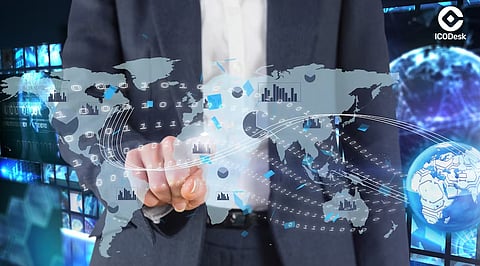

In today's fast-paced business world, CEOs face unprecedented complexity. Amidst economic uncertainty, rapid technological advancements, and shifting regulatory sands, a new breed of leadership is emerging. To stay ahead of the curve, forward-thinking CEOs are concentrating on five critical areas that will distinguish business winners in the years to come. This article explores these essential focus points, highlighting the innovative strategies and distinctive traits that will set visionary leaders apart in 2025 and beyond.
To stand out in 2025, CEOs must balance technology with human values. This requires adaptability, a clear vision, ethical considerations, and a thorough understanding of technology. Crucially, they must also care for their employees and navigate the changing world with both vision and resilience. How do our ten leaders exemplify these qualities?
Automation has evolved beyond simple time-saving measures. It's now about leveraging data for smarter decisions. CEOs recognize this shift, and they are investing heavily in intelligent automation to cut costs and generate new revenue streams. Companies are using automation to forecast trends and enhance operational efficiency. However, integrating these technologies presents challenges. Businesses must ensure employees are adept at working alongside AI. They must also prioritize ethical AI implementation, ensuring fairness and transparency. CEOs with a clear automation strategy will gain a significant competitive edge.
Simultaneously, AI is reshaping the workforce. By 2026, IDC predicts that a substantial portion of knowledge workers will leverage AI to automate tasks. CEOs must strike a balance: maximizing efficiency while mitigating the risks associated with AI. Responsible AI implementation is paramount. Companies must proactively address ethical considerations and invest in employee training. This will equip their workforce to collaborate effectively with AI. Those who prioritize this integrated approach will secure a distinct advantage in the evolving business landscape.
The rules are always changing. This is especially true for AI, data privacy, and ESG. CEOs must keep up and make sure their companies follow the new rules. Companies are investing in tools that help them track these changes.
Businesses are not only reacting to regulations but also building systems to ensure ongoing compliance, which is crucial for risk avoidance. The rapid evolution of AI laws, especially those related to data privacy and fairness, requires companies to develop comprehensive strategies. Furthermore, as ESG standards become more stringent, transparent sustainability practices are essential. CEOs are also taking a proactive role by engaging with lawmakers, influencing regulatory development, and maintaining their competitive edge.
Customers expect good digital flawless experiences. They want things to be easy and personal. CEOs know this and utilise AI to give customers what they desire. They are using AI to personalize experiences and engage with customers in real-time.
Companies are investing in AI-powered tools. These tools include chatbots and predictive analytics. This also helps build trust with their customers. This means being ethical with data. Companies that focus on customer experience will build loyalty.
Cybersecurity is a big concern nowadays. As companies use more digital tools, there are more chances of cyber threats. CEOs are putting money into strong security systems. They are using things like zero-trust architectures and AI-powered threat detection.
CEOs are working with security experts to create cyber resilience. They are making sure security is a major part of their business strategy. They are also looking at their supply chains and making sure their partners are secure.
Sustainability has transitioned from a mere corporate gesture to a fundamental business imperative. By 2027, consumer demand for CO2 emissions data will become widespread. Consequently, CEOs are actively integrating ESG principles into their operational frameworks, aiming to mitigate risks and fulfill stakeholder expectations. As ESG regulations tighten, companies that strategically embed sustainability into their business models will gain a competitive advantage, fostering stronger relationships with investors and customers.
CEOs navigate a multifaceted landscape, contending with rapid technological advancements, evolving regulatory frameworks, and heightened customer expectations. Success hinges on their ability to strategically embrace automation, cultivate a skilled workforce, ensure regulatory compliance, prioritize customer experience, fortify cybersecurity defenses, and operationalize ESG principles.
Those who effectively integrate these strategies will not only build resilient organizations but also emerge as influential leaders shaping the future of their industries. Continuous learning and adaptability are paramount for CEOs to ensure their companies thrive in this dynamic environment.